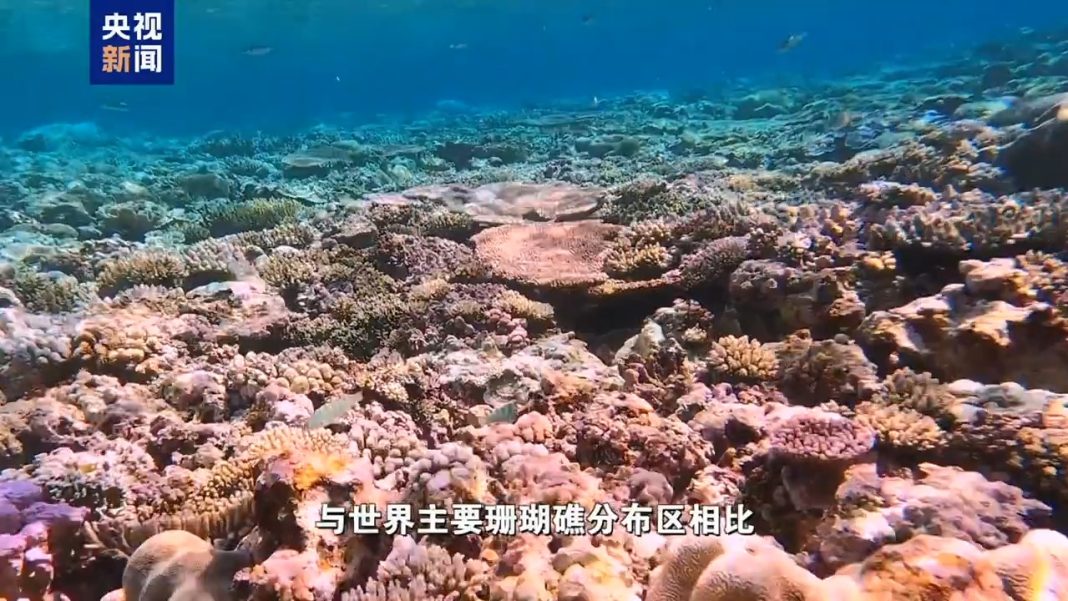BEIJING: The coral reef ecosystem at Xianbin Jiao of China’s Nansha Qundao is generally healthy, according to a report released.
From May to July 2024, the South China Sea Development Research Institute of the Ministry of Natural Resources, together with the South China Sea Ecological Center, the South China Sea Survey Center and other organizations, conducted a survey and evaluation of the coral reef ecosystem at Xianbin Jiao.
The first survey report was released, revealing that the ecosystem is “in a generally healthy state with local damages.”
According to the report, the overall reef-building coral coverage area at Xianbin Jiao reef platform has stayed generally stable. There are 236 species of reef-building corals across 57 genera and 13 families, with an average coverage rate of 24.7 percent and a maximum of 51.3 percent, indicating a relatively high level compared to other major coral reef areas in the world.
There is a large variety of fish and benthic macro-invertebrate as well as rare creatures moving in droves. At Xianbin Jiao, there are 179 species of coral reef fish across 26 families, including wrasses, damselfish, and clownfish, with an average density of about 124 fish per 100 square meters.
No large-scale coral bleaching or outbreak of hostile organisms has been detected, but reef-building corals at local areas of Xianbin Jiao are threatened by crown-of-thorns starfishes, fleshy macroalgae and human activities.
Xianbin Jiao currently has six cays and three of them are above water at high tide, with coral debris and damaged reef-building corals distributed within a certain radius around them. The sediments found at the cays and adjacent waters are highly homologous, and no land-based substances have been found.
Besides the 23 survey stations set previously, 34 additional inspection stations were set to support this survey, which “covered 75 parameters across four categories, including coral communities, reef organisms, reef habitats and human activities,” said Huang Huamei, deputy dean of the South China Sea Development and Research Institute. –The Daily Mail-CGTN news exchange item





